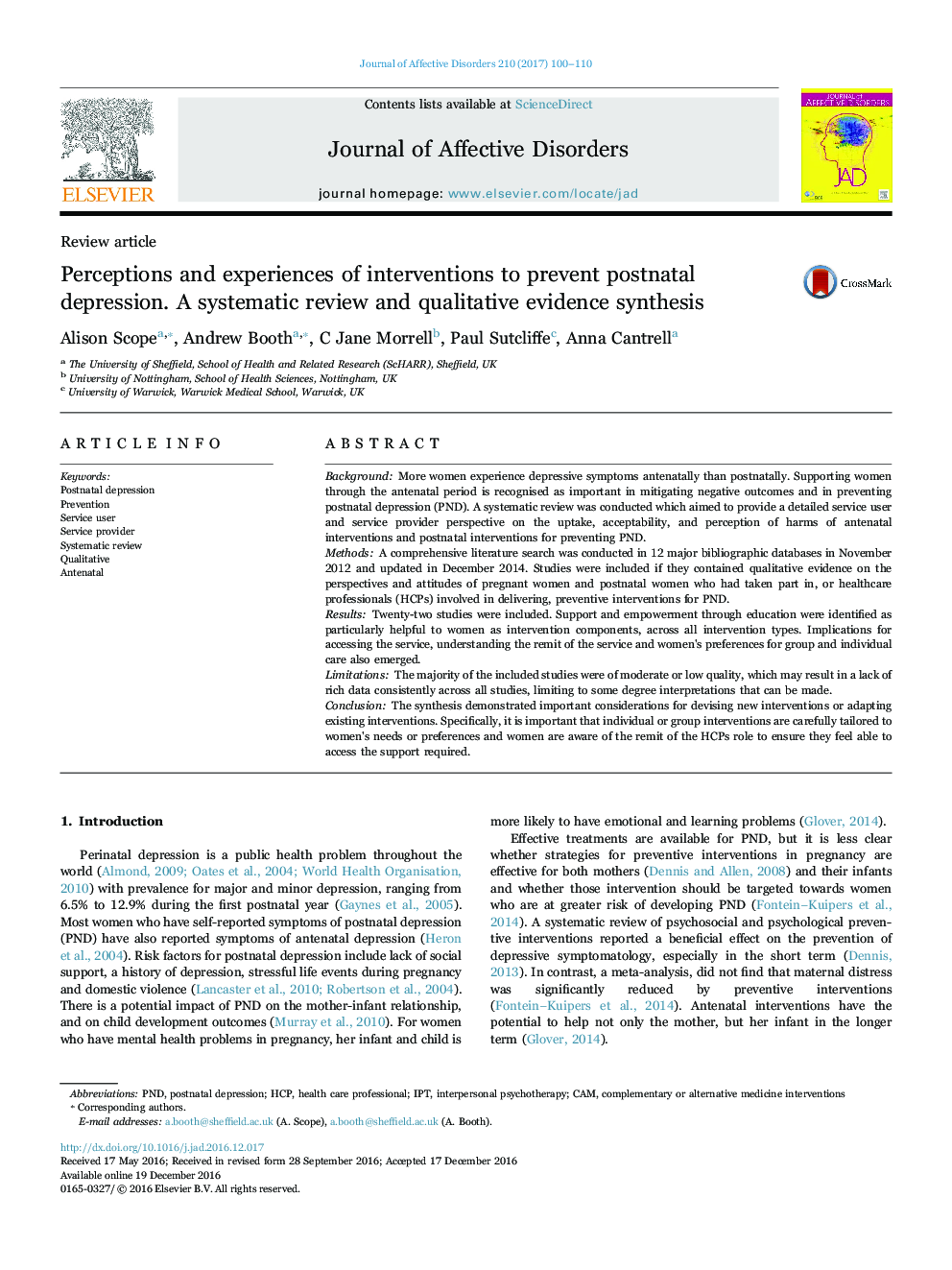| Article ID | Journal | Published Year | Pages | File Type |
|---|---|---|---|---|
| 5722378 | Journal of Affective Disorders | 2017 | 11 Pages |
â¢Perceptions of interventions for preventing PND are presented.â¢Support and empowerment through education are important intervention components.â¢Accessibility and understanding the remit of the service are important.â¢Good relationships with providers and group members are important mechanisms.
BackgroundMore women experience depressive symptoms antenatally than postnatally. Supporting women through the antenatal period is recognised as important in mitigating negative outcomes and in preventing postnatal depression (PND). A systematic review was conducted which aimed to provide a detailed service user and service provider perspective on the uptake, acceptability, and perception of harms of antenatal interventions and postnatal interventions for preventing PND.MethodsA comprehensive literature search was conducted in 12 major bibliographic databases in November 2012 and updated in December 2014. Studies were included if they contained qualitative evidence on the perspectives and attitudes of pregnant women and postnatal women who had taken part in, or healthcare professionals (HCPs) involved in delivering, preventive interventions for PND.ResultsTwenty-two studies were included. Support and empowerment through education were identified as particularly helpful to women as intervention components, across all intervention types. Implications for accessing the service, understanding the remit of the service and women's preferences for group and individual care also emerged.LimitationsThe majority of the included studies were of moderate or low quality, which may result in a lack of rich data consistently across all studies, limiting to some degree interpretations that can be made.ConclusionThe synthesis demonstrated important considerations for devising new interventions or adapting existing interventions. Specifically, it is important that individual or group interventions are carefully tailored to women's needs or preferences and women are aware of the remit of the HCPs role to ensure they feel able to access the support required.
